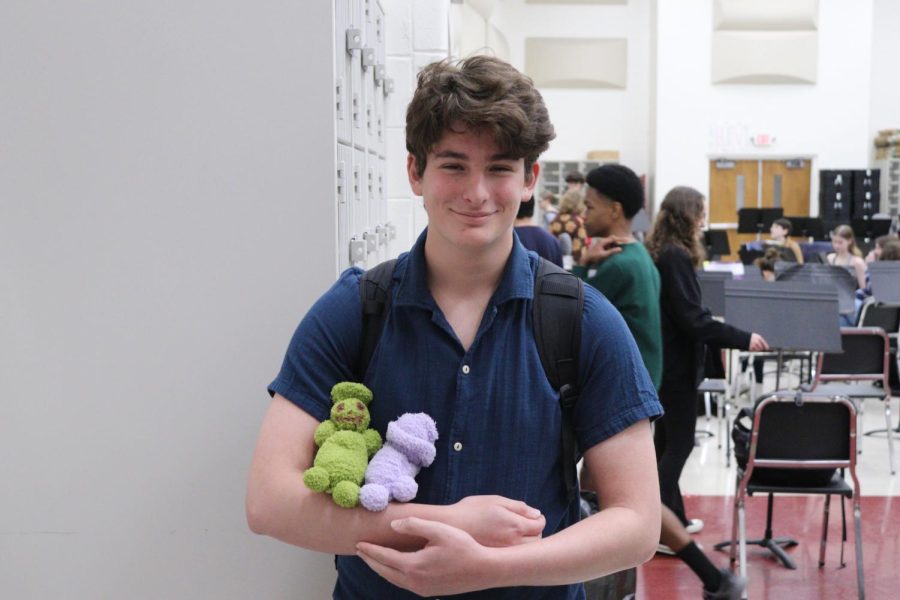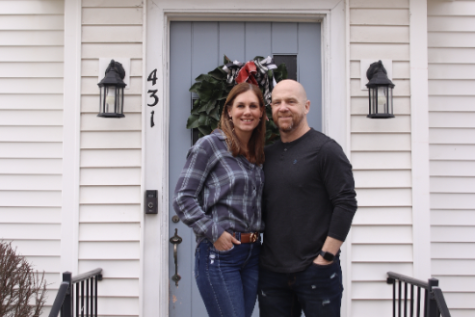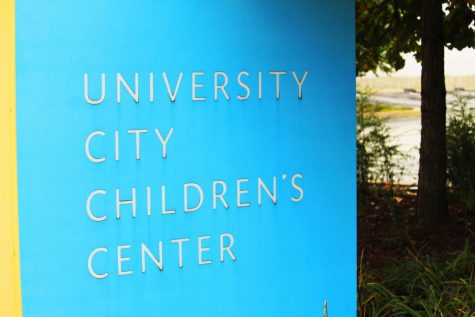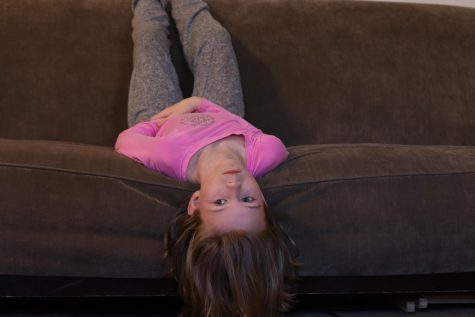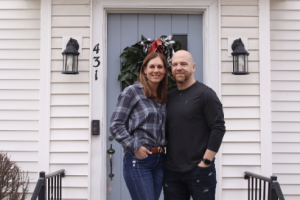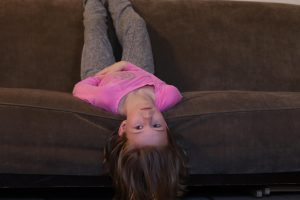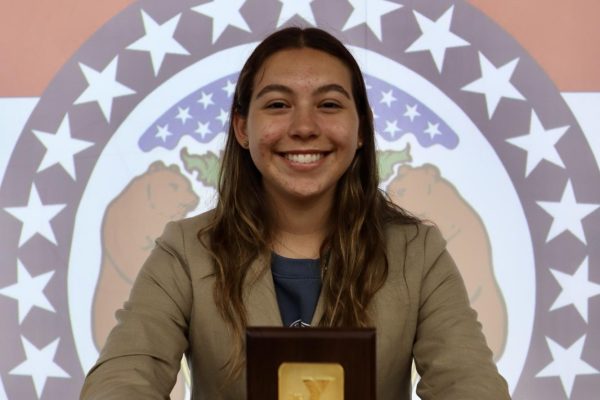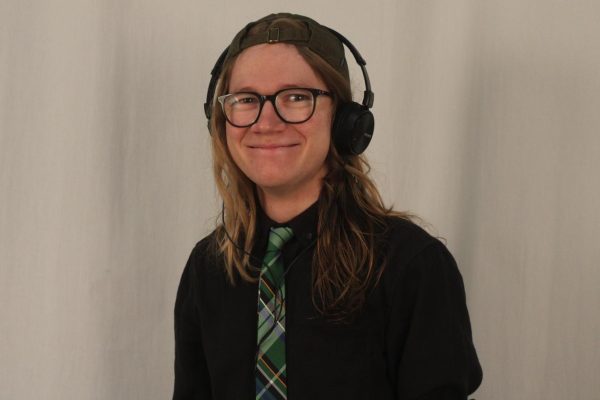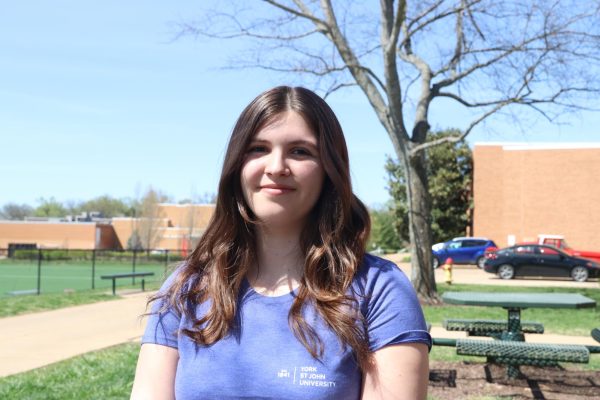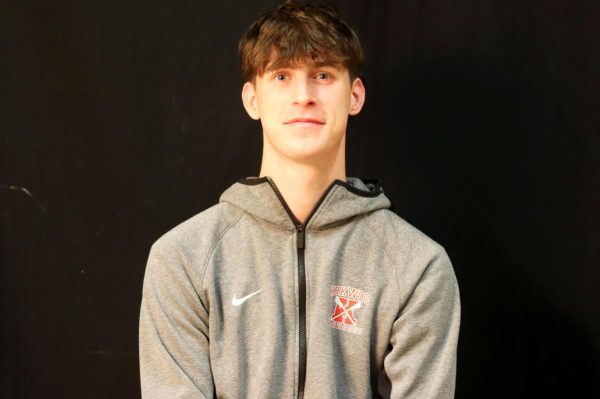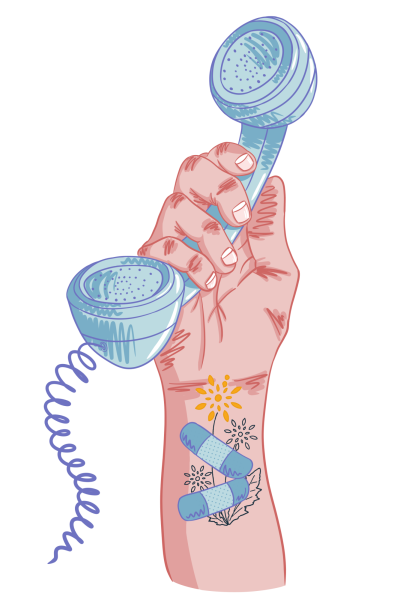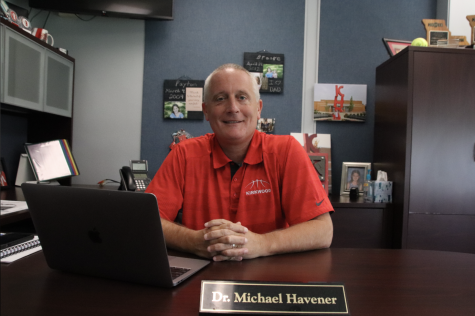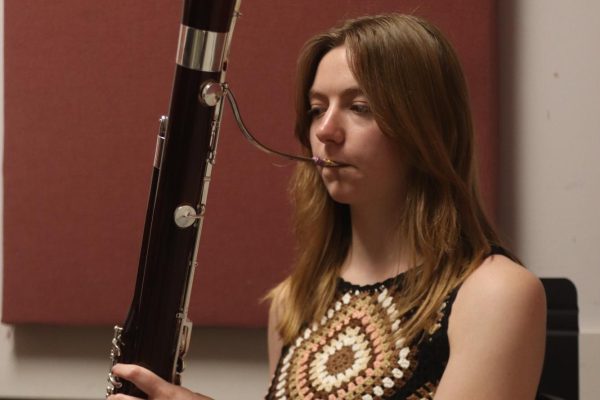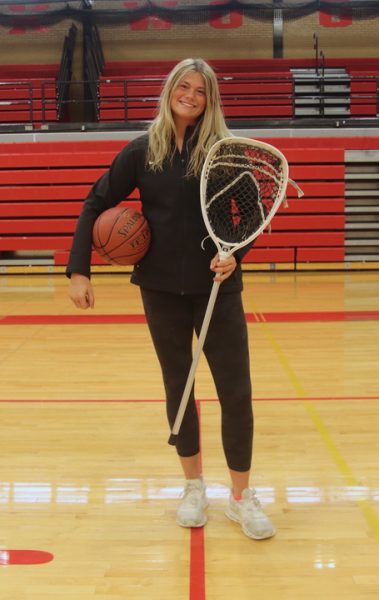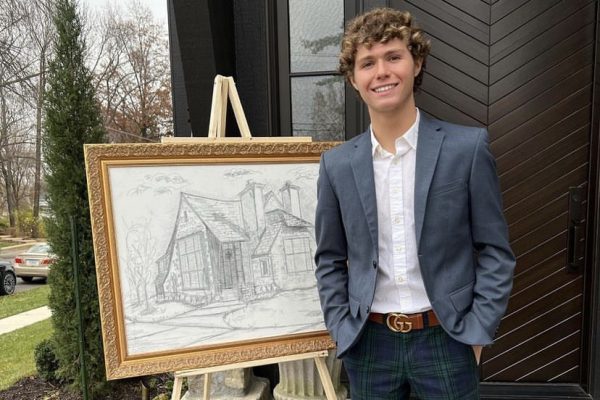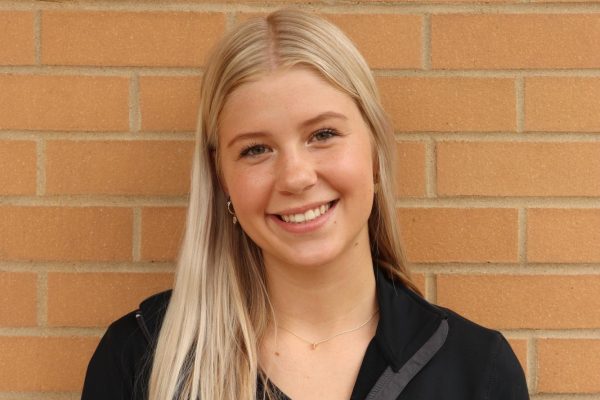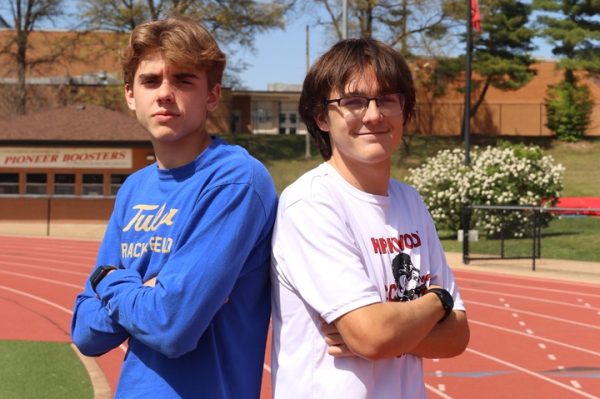Baby blues: the teenage parents of KHS
Vas Djuranovic, junior, cradles his two kids during band class.
A new phenomenon has swept through KHS: teen pregnancy. On Feb. 22 and 23, 2023, over 100 students suddenly delivered children. Strangely, they were all in AP Psychology.
These are their stories.
Vas Djuranovic, junior, brings his twins, Frankie and Rowan, with him to KHS every morning. Frankie wears a tattered yellow jacket and kilt, while Rowan is draped in an oversized tank top. In each of Djuranovic’s classes, the twins are sent to teacher-made nurseries. When Djuranovic goes to water polo practice after school, the twins cheer on their dad from the stands.
“[The hardest thing about parenting] is working days on end, especially with school too,” Djuranovic said. “It’s my whole work-life mixed in with taking care of the children. [And] there’s no mom.”
Djuranovic, alongside the other KHS teenage parents, reproduced asexually, forcing many to become single parents. According to Djuranovic, this is because the babies are made out of socks. Despite the children’s non-biological nature, funding their needs is still a difficult part of parenting. This is even more difficult for Djuranovic compared to other KHS parents, as he has twins. He said his family gets by on scraps, but he still loves his children and said he feels they are in a safe environment.
It’s hard being a single father. — Vas Djuranovic
“It’s hard being a single father,” Djuranovic said. “But [the kids] feel really safe, and there’s no need for them to worry about anything.”
Gabbie Roseman, senior, shares similar struggles. Her son, Sully, is blue and wears a scarf and pom-pom beanie crocheted by his grandma. Roseman lives a busy life, and said taking him everywhere has been the hardest part of being a single mother.
“I almost left him in my car,” Roseman said. “I left him at home when I went out to dinner. I’m a horrible single mom, but he has really supportive grandparents that help out a lot.”
Traveling between KHS, racquetball and other activities has made Sully very social, Roseman said. Sully watched as Roseman won the state racquetball competition, and the family went to Portland for Nationals. Roseman has to use babysitters for the times she can’t watch Sully.
“I don’t think that it’s ideal that an 18 year old is raising a baby by herself, especially when she’s in school and has other priorities,” Roseman said. “[Having a baby] reminds me that I’m not always responsible or organized. He should be an attachment, but sometimes I just leave him places.”
Nicki Kaufmann, AP Psychology teacher, said she has seen worse. According to her, the sock babies are a good project to teach students about the theories of development. But, after seeing child-throwing and neglect, she said the students are not yet ready to be parents. Kaufmann said while students are given points for bringing their babies to class, the purpose of the project is not to be a good parent, it’s to predict the babies’ personalities based on their parenting.
[Having a baby] reminds me that I’m not always responsible or organized. He should be an attachment, but sometimes I just leave him places. — Gabbie Roseman
“We use the theories of Piaget, Erikson, [as well as other psychologists] and other attachment styles,” Kaufmann said. “Some students are throwing or abandoning their babies, so we would anticipate that the baby would have a very insecure attachment style, whereas parents that are taking it a little more seriously and really [focusing] on their babies would have babies with a more secure attachment style.”
Kaufmann introduced the sock babies to KHS this year after hearing about it in a teachers’ conference. The two other AP Psychology teachers adopted the project as well. The end goal of the project is to create a memory album with a birth certificate, backstory, developmental analysis and a scrapbook with photos of the baby. Students and Kaufmann agree that high schoolers are not ready for parenting, and hope that no harm is done to the poor children.
Your donation will support the student journalists of Kirkwood High School. Your contribution will allow us to purchase equipment and cover our annual website hosting costs.
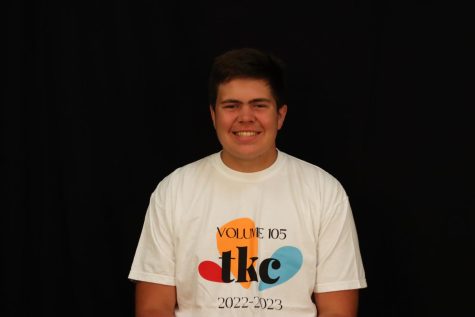
He/Him
Hobbies and Interests: music, video games, football
Favorite song: NEW MAGIC WAND by Tyler, the Creator
Favorite Quote: "Everybody wanted...
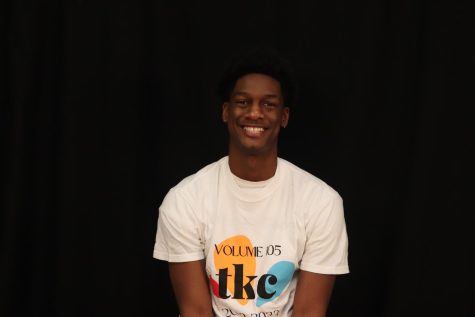
He/Him
Hobbies and Interests: Sports (especially college sports), music and cooking
Favorite song: Love Yourz by J. Cole
Favorite Quote: "Reach...


